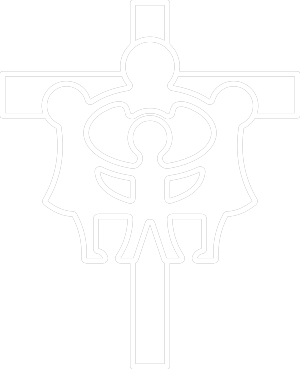Early Years Foundation Stage
"Be devoted to one another in love. Honour one another above yourselves."
Romans 12:10
Intent
At Aspull Church Primary School we believe in providing a secure foundation for future learning and development for our children. Our EYFS curriculum allows children to develop interpersonal skills, build resilience and become creative thinkers. We aim to provide a fun, secure, challenging and rich educational environment that enables each individual to thrive! We work closely with nurseries, pre-schools, child minders and parents to ensure continuity and consistency between the foundation stages. Our Mission statement, “In the light of Jesus, we move forward together, to achieve the highest standards in all aspects of life – shining like stars in the world.” is at the heart of everything we do.
We place a strong emphasis on the religious, spiritual, moral and cultural development of all our pupils. Our Christian values shape how we behave, what we say, how we build relationships and how we learn. They are incorporated in every aspect of life at Aspull Church Primary School. Every child is recognised as a unique individual and we celebrate and welcome the differences within our school community.
Implementation
At Aspull Church Primary School we follow the Early Adopter EYFS Framework (2020). The EYFS has four guiding principles which work together to shape practice and underpin effective delivery of the EYFS. At Aspull Church Primary School we ensure that we value and promote these themes to plan and promote a stimulating, enjoyable and challenging Foundation Stage. These are:
- Every child is a unique child, who is constantly learning and can be resilient, capable, confident and self-assured
- Children learn to be strong and independent through positive relationships
- Children learn and develop well in enabling environments, in which their experiences respond to their individual needs and there is a strong partnership between practitioners and parents and/or carers
- Children develop and learn in different ways and at different rates
The framework covers the education and care of all children in early years provision, including children with special educational needs and disabilities(SEND).
There are seven areas of learning and development that must shape children’s education in Early Years. All seven areas of learning are equally important and depend on each other to support a rounded approach to child development. The seven areas are split into three prime areas and four specific areas. The prime areas are crucial for igniting children’s curiosity for learning and supporting them to form relationships and thrive. These three areas are:
- Communication and language
- Physical Development
- Personal, social and emotional development
The four specific areas of learning take place once the prime areas have been strengthened and applied. These four areas are:
- Literacy
- Mathematics
- Understanding the world
- Expressive Art & Design
All the areas are delivered through well planned purposeful independent play with a balance of adult led and child initiated activities. Throughout their time in the Reception year our children partake in an ambitious curriculum which is designed in a sequential way to ensure progress towards the end of reception goals. These goals are defined as Early Learning Goals.
Our curriculum incorporates learning through play, learning by adults modelling, by observing each other and through guided learning and direct teaching. It is also important to highlight that our plans are flexible to allow us to respond quickly to children’s new interests and/or needs.
Weaving throughout the EYFS curriculum at Aspull Church are three Characteristics of Effective Learning.
- playing and exploring - children investigate and experience things, and ‘have a go’
- active learning - children concentrate and keep on trying if they encounter difficulties, and enjoy achievements
- creating and thinking critically - children have and develop their own ideas, make links between ideas, and develop strategies for doing things
These elements underpin how we reflect on each child’s development and adjust our practice accordingly. Supporting children in their individual learning behaviour and observing the context of children’s play is essential. We work with parents constantly throughout the year to build up a picture of the ‘whole child’. This enables us to understand what the children achieve out of school as well as in school.
Our long term plan is organised around the interests of the children to ensure there is curriculum coverage, as well as this, we use specific schemes. For phonics, we are rolling out the ‘Sounds-Write’ scheme, for maths we use ‘White Rose Maths’ and for PSHE, we use ‘SCARF.’
Impact
We want each child to get the best possible start in life and to be ready to thrive in KS1. At Aspull Church Primary School we do this by ensuring ongoing assessment is an integral part of the learning process. Staff observe pupils all the time and these observations are used to support, challenge and plan.
We use Target Tracker to record progress as well as observations. We use floor books and individual maths and English books (when appropriate) to record children’s work. The children also have ‘scrap books’ to keep a record of their independent work from different areas in the classroom. We also use Twitter and the hashtag #acpseyfs to record learning. Parents send in ‘Wow Moments!’ to celebrate achievements at home and these are recorded in scrap books too.
At the end of EYFS a profile is created for each child. Children are assessed against the Early Learning Goals and reports written with reference to the Characteristics of Effective Learning.
The EYFS team meet for regular meetings and receive CPD when necessary. Teachers attend moderations and work with other schools to ensure moderation is accurate. Teachers have half termly pupil progress meetings to ensure progress is being made for each individual child.


